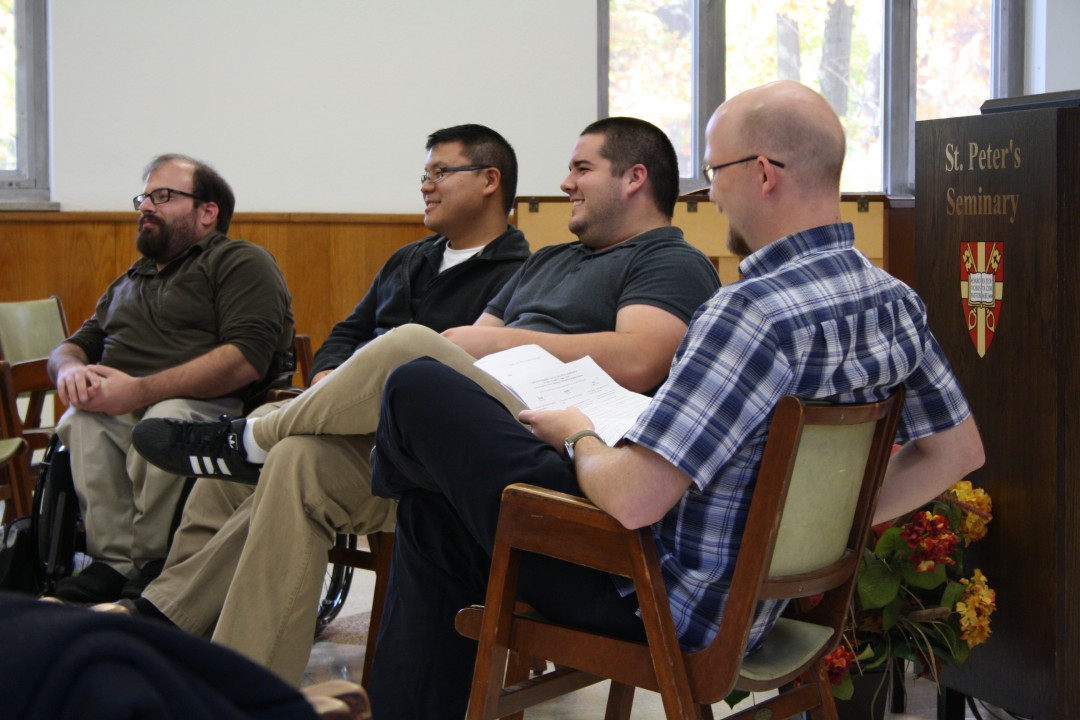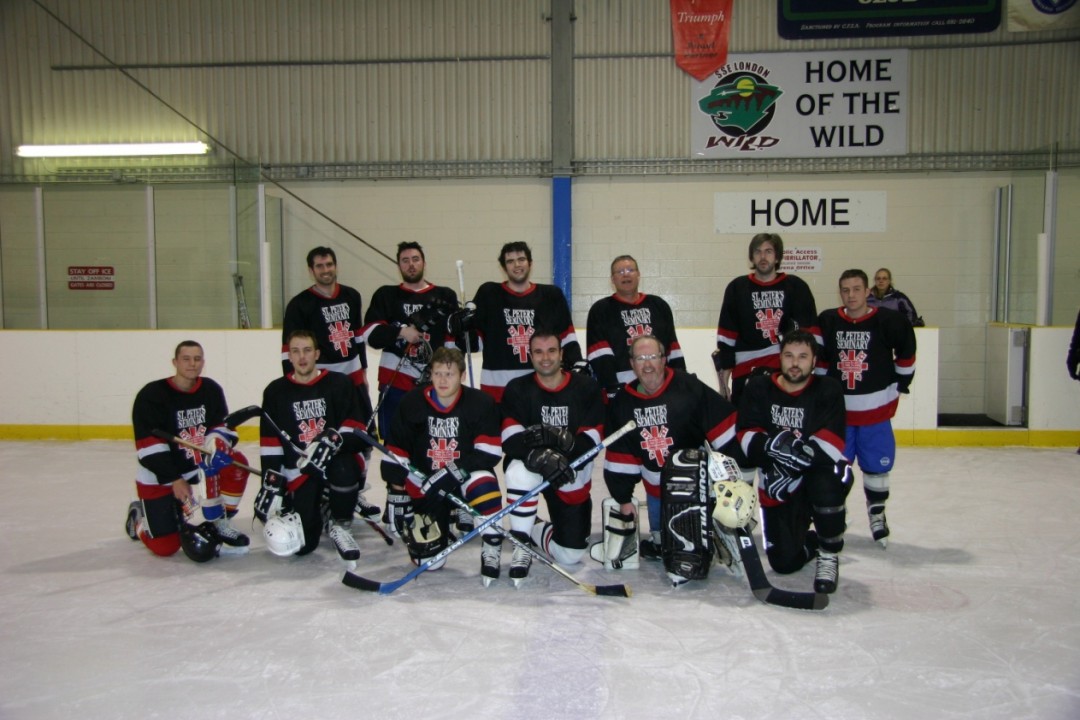A Day In The Life

A man thinking about the priesthood would naturally wonder what life is like in a seminary. Am I going to be stuck in a monastery? Can I get out if I want? What if I come to realize it isn’t for me? Will I be allowed the freedom to study what I want? How long does it take?.... All are good questions, and quite normal for any enquirer. Below is a description of a typical day in the life of a Seminarian at St. Peter's. Be sure to have a look at the description of the Purpose and Program of Formation.
What does a typical day look like?
We begin each day in the chapel, with either Morning Prayer from the Liturgy of the Hours or the Eucharist at 7:30 a.m. After breakfast, which follows, many of the men gather informally over coffee in the group lounges, where the newspaper is available usually with one of the morning news programs on the TV at the same time. Class hours will vary from one program to another, but the normal fifteen-to-twenty hours of class time are spread throughout the week. In theology, these are concentrated from Tuesdays to Fridays, with someevening classes. The arts schedule is more varied, depending on the choices of the students.
The early afternoons are less structured, leaving time for study, recreation, personal prayer, or exercise. The latter part of the afternoon involves another community event, which will vary from day to day, but always including either the daily Eucharist or Evening Prayer, to complement the morni ng schedule. On Tuesdays, we have spiritual conferences, which focus on developing the identity and spirituality of a diocesan priest. Wednesdays feature a liturgy practicum, which varies from music practice to presentations on aspects of the liturgy. These are meant to augment the courses taught here and help the seminarians develop a balanced liturgical spirituality. Normally throughout the school year, we have Exposition of the Blessed Sacrament each Friday, from Morning Mass till Evening Prayer.
ng schedule. On Tuesdays, we have spiritual conferences, which focus on developing the identity and spirituality of a diocesan priest. Wednesdays feature a liturgy practicum, which varies from music practice to presentations on aspects of the liturgy. These are meant to augment the courses taught here and help the seminarians develop a balanced liturgical spirituality. Normally throughout the school year, we have Exposition of the Blessed Sacrament each Friday, from Morning Mass till Evening Prayer.
Supper is served at 5:30 each day. St. Peter's has excellent food services featuring a menu with great variety and balanced nutrition. You never know what’s coming next, and our staff takes pride in their work and creativity. At the evening meal, we take more time to socialize and share stories of the day. Following the evening meal, we gather once more in the chapel to pray for priests, especially our alumni, and to sing a hymn to the Blessed Mother.
Like the afternoons, the evenings are open to a variety of things. The entire community keeps Monday evenings free for community events, ranging from a talk by the Rector or a special visitor to the gathering of the small groups. These gatherings include a number of possible activities such as discussions on the life and ministry of priests, a visit to a local funeral home, an out-reach project or a social night. Tuesday is usually an evening dedicated to classes, depending on one’s program. On other evenings the flexible time allows for study, recreation, exercise, organized intramural sports, and meetings with one’s spiritual director or formation advisor. Students are responsible for their own time and schedule most evenings.
Saturdays are free throughout the day, with the only requirement being that students attend the celebration of the Eucharist, wherever and whenever they like, though one celebration is scheduled at the Seminary. One full weekend each month is considered a “free weekend”, so not only is Saturday free, but students are excused from all regular activities from the last class on Friday until Sunday night.
Sundays are given to much free time, but the day begins and ends with Morning and Evening Prayer. The celebration of the Eucharist normally takes place in the morning and provides, on many Sundays, an opportunity for seminarians to invite family members or friends for the celebration and a great brunch which follows. This varies, of course, on days of recollection or retreat.
So, while there is much that happens routinely in the Seminary, each day has its own rhythm and the seminarians have a varied schedule. The variety is not only “the spice of life” but helps candidates for the priesthood learn how to organize and manage their time while availing themselves of all the possible moments for formation, discernment, and building friendships that will last a lifetime.

